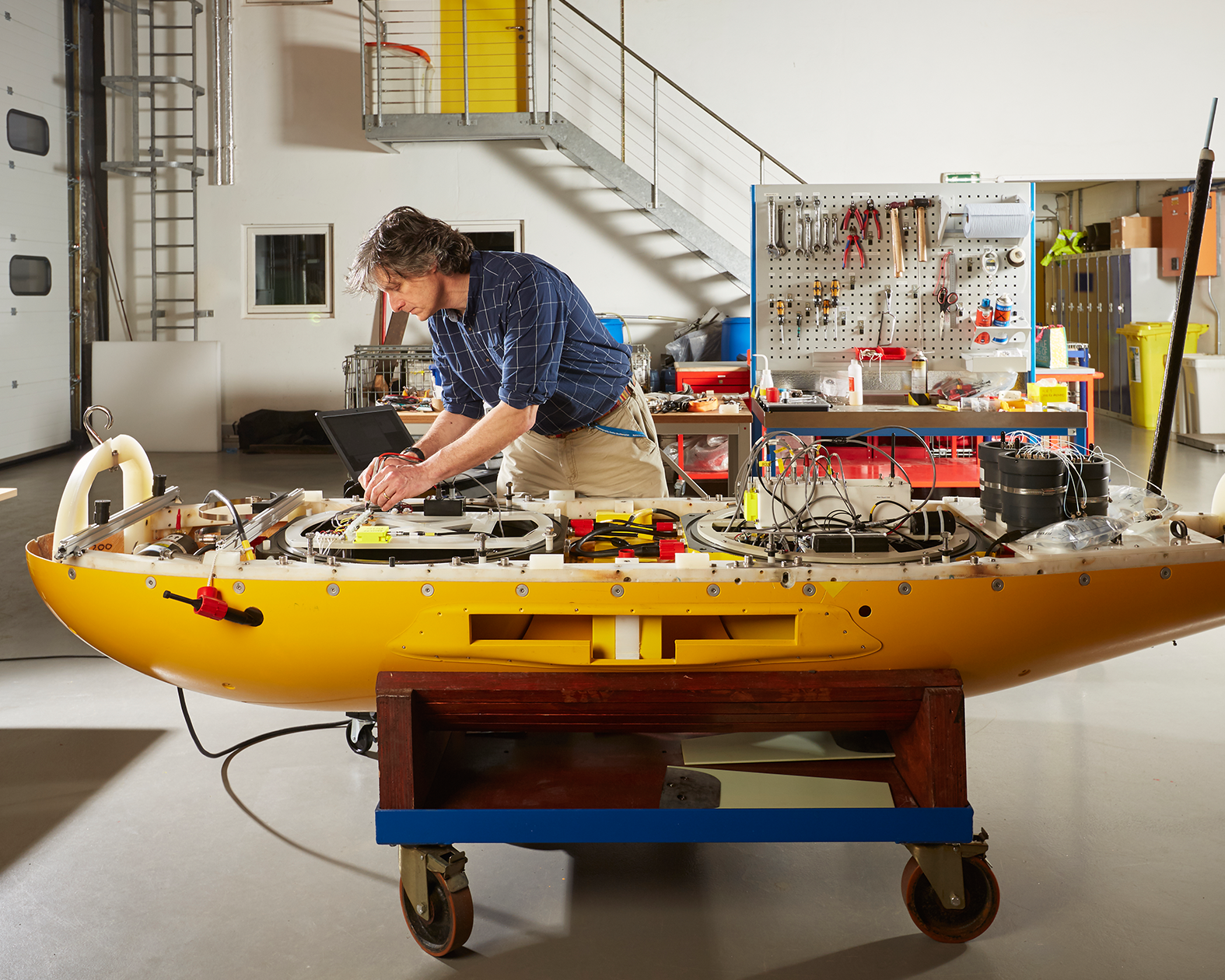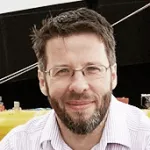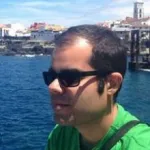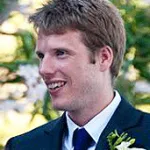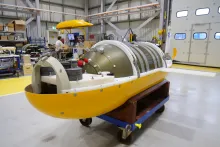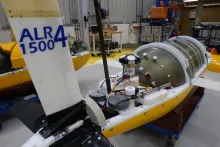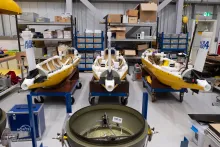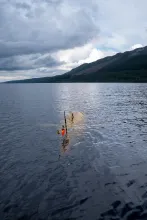ALR1500
Oceanids is continuing the successful family of Autosub Long Range AUVs with the development of ALR1500. Capable of deploying for up to three months, ALR1500 will open new opportunities for lower cost shore-based scientific missions. ALR1500’s range, sensors and innovative navigation system will offer the science community exciting new opportunities for under-ice exploration. ALR1500 is also working to reduce the cost and environmental impact of AUV-delivered science by introducing rechargeable batteries that will save on materials costs and turnaround times.
AS2KUI
Oceanids is building on the NOC’s existing Autosub 6000 by developing a second large AUV equipped for high-power, shorter duration under-ice science missions. Autosub Long Range 2000 Under Ice (AS2KUI) will be equipped with state-of-the art sonars and camera systems to enable scientists to create detailed maps and establish habitat characteristics of the seafloor, and will also have under-ice navigation capabilities so it can operate underneath vast areas of sea ice or glaciers. The systems on board will be designed to withstand pressure at depths of 2,000m.
C2
Oceanids is working to replace the variety of platform-specific command-control systems with a common command-control and data processing system. The Oceanids C2 system has already been demonstrated with multiple vehicles and used in support of funded science on the AlterEco project.
Sensors
Oceanids is developing five new marine sensors through a competitive grant call. Partners in the NOC, University of Exeter and University of Southampton are collaborating to deliver TRL8 standard sensors. Oceanids is leading a package of work to integrate these sensors with a range of autonomous surface and sub-surface vehicles. They are:
- Nutrient sensors on autonomous vehicles, led by Professor Matt Mowlem at the National Oceanography Centre. This project will seek to adapt and optimise an existing platform to produce six new operational sensors for nutrients and micronutrients. The results will be crucial to advance our knowledge of how marine ecosystems work and how they respond to a changing climate. These ‘lab-on-chip’ miniaturised laboratories will be able to perform seawater chemical analysis using small amounts of seawater samples and chemical reagents to help create more complete low-cost ocean chemical datasets.
- Calibrated pCO2 in air and surface ocean sensor for autonomous surface vehicles (CaPASOS), led by Professor Andrew Watson at the University of Exeter. This project seeks to enhance our understanding of the global carbon cycle, particularly in in the Indian, South Pacific and Southern oceans, where there is currently insufficient data. The team will develop a calibrated sensor to measure partial pressure of carbon dioxide (pCO2) in the air and surface ocean, both of which are vital to calculating how CO2 moves between the air and sea.
- BioCam – mapping of benthic biology, geology and ecology with essential ocean variables, led by Dr Blair Thornton at the University of Southampton. This project will develop a unique and low power 3D visual mapping system to obtain highly detailed colour images and topographical measurements of the seafloor such as measuring the cover of live cold-water coral within marine protected areas. This sensor will be able to integrate with the Autosub, ALR and remotely operated vehicle (ROV) Isis underwater platforms operated by the National Oceanography Centre.
- Carbonate chemistry autonomous sensor system (CarCASS) led by Professor Matt Mowlem at the National Oceanography Centre. This proposal aims to create a sensor capable of taking the first autonomous measurements of the seawater carbonate chemistry from the surface to full ocean depth. The resulting sensor will be used to improve our understanding of the inorganic carbon cycle in the ocean, as well as monitor ocean acidification shell fishing areas and mariculture establishments. The sensor will also be a powerful tool for monitoring sub-seafloor carbon storage as it would be able to detect leaks of CO2 during and after gas injection.
- Single turnover active fluorometry of enclosed samples for autonomous phytoplankton productivity (STAFES-APP), led by Professor Mark Moore at the University of Southampton. This proposal plans to create a step change in our ability to understand the global carbon cycle and the function of ocean ecosystems. They will develop an active chlorophyll fluorometer sensor capable of measuring how phytoplankton process carbon for food in situ. It will be able to monitor and understand this process from smallest scales up to oceanic basin scales.
